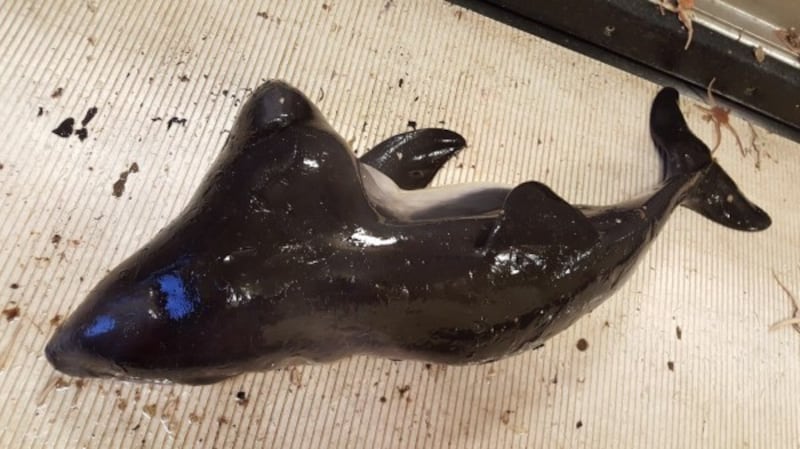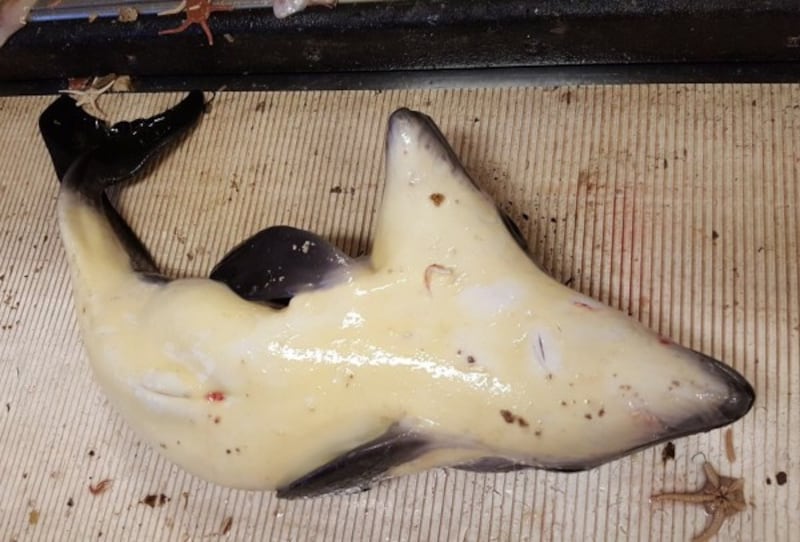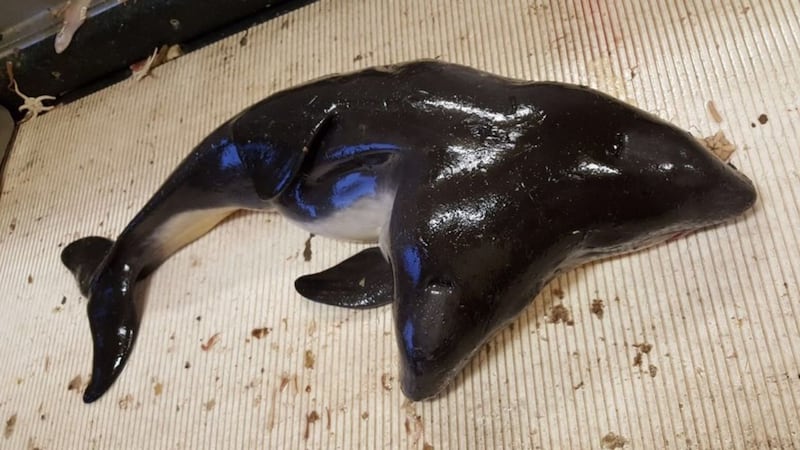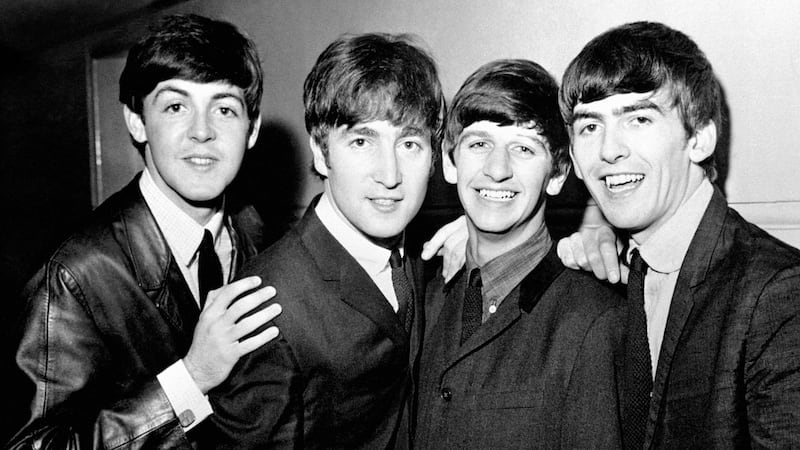A two-headed harbour porpoise, believed to be the first one ever seen, was caught by fishermen in the North Sea.
Believing it would be illegal to keep the mammal, the Dutch fishermen threw it back into the sea, but luckily, they took photographs that specialists could examine so they could shed light on the mysterious creature.
“The specimen, however, is lost for science and natural history,” Erwin Kompanje, of the Erasmus MC University Medical Centre in Rotterdam, wrote in his paper.

The bizarre-looking mammal (Phocoena phocoena) was caught dead and scientists say they are certain the conjoined Siamese twins were newborn males.
Experts noted there were hairs on the upper lip, which should have fallen out after it was born, the dorsal fins were erect and it still contained an umbilical cord opening – indicating the creature died very young.
The harbour porpoise is one of the most common cetaceans (marine life which includes whales and dolphins) found in north-west European waters.

While cases of conjoined twins have been studied in humans, reptiles and domestic animals, they are rarely seen in wild animals.
“Descriptions of conjoined twins in whales and dolphins (Cetacea) are extremely rare,” Kompanje said.
“We were aware of only nine published cases and symmetrical conjoined twins, such as this porpoise, are thought to result when two separate embryos fuse together or a zygote only partially splits.”

The harbour porpoise is the smallest and most abundant cetacean in the European waters. Nearly 700,000 porpoises roam the waters around the world, with 345,000 residing in the North Sea.
According to the International Union for the Conservation of Nature, incidental catch is the biggest threat facing porpoises and measures have been taken to monitor nets and trawls to see whether they are causing the numbers to dwindle.
The species produces offspring every one to two years.








